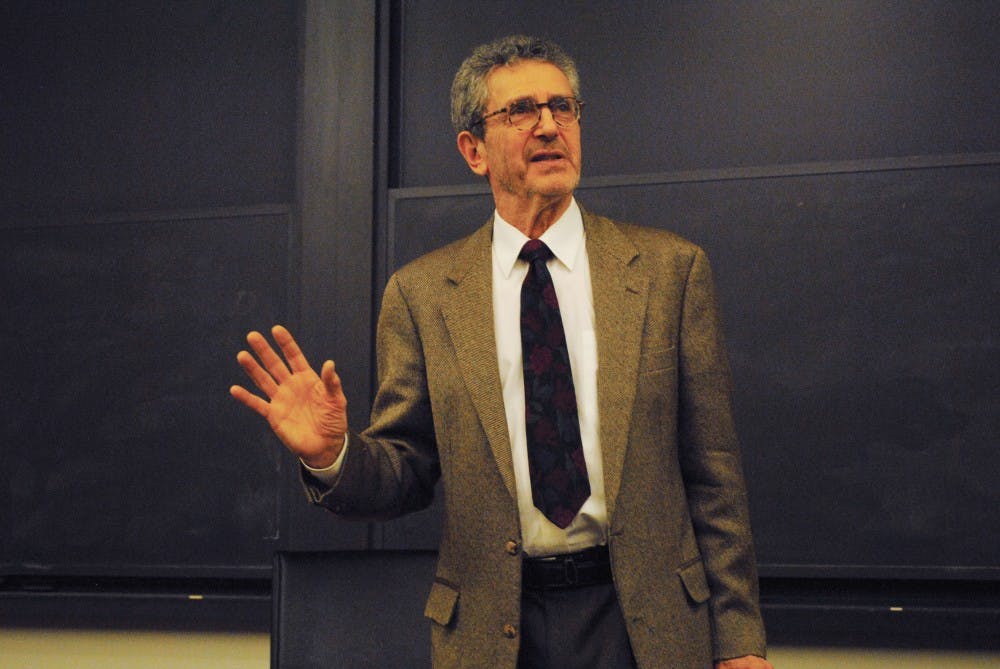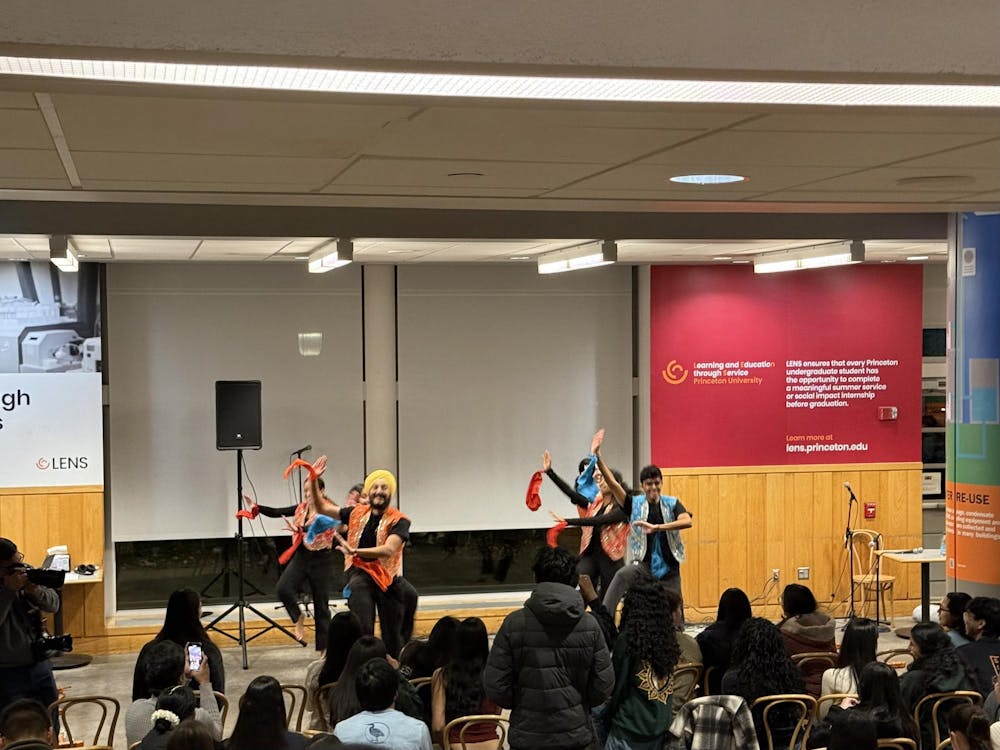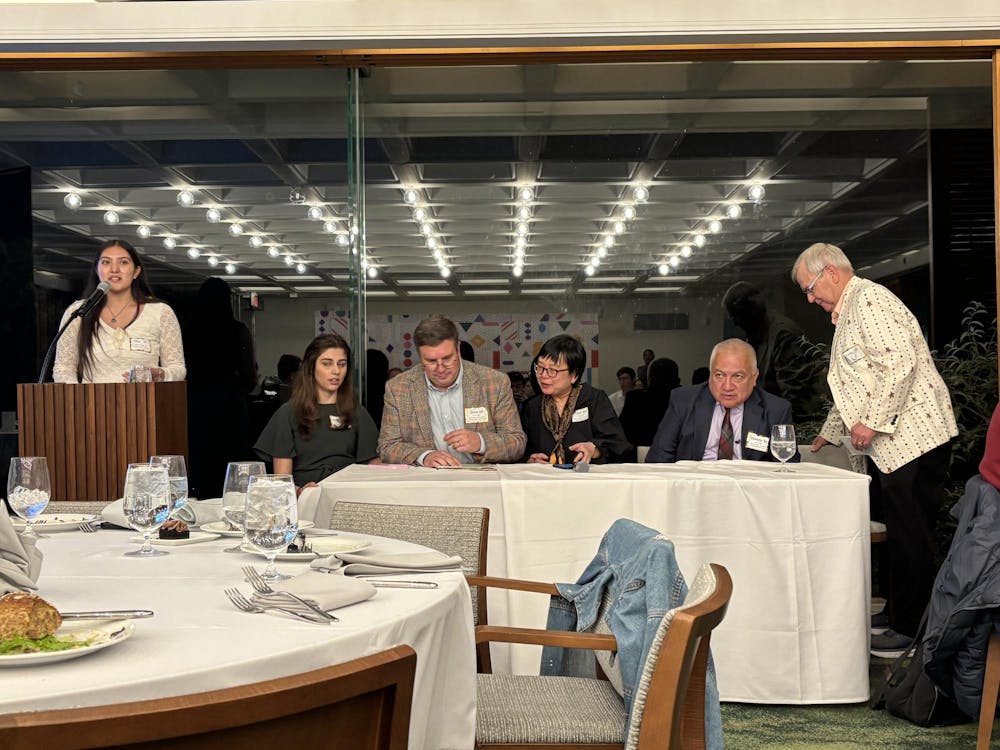The United States chose the wrong side in the Chinese civil war, Richard Bernstein, former Beijing bureau chief for TIME magazine, said in a talk on Wednesday.
Bernstein discussed his recently published book, “China 1945: Mao’s Revolution and America’s Fateful Choice.”
Bernstein said it was his publisher’s idea to write about a time in Chinese history that was important for the formation of China’s relationship with the United States, adding he gave himself poetic license to stretch the book from September 1944 to April 1946.
“I had hoped to write something with scholarly authority that would be a good read —a popular read,” he said.
The conflict began in 1927 and lasted until 1937, when the two sides united to fight a Japanese invasion, and then resumed in 1946 and continued until 1950.If the advice from a small group of China experts had been followed, the U.S. and China could have had a relationship and communication that could have led to less conflict, he said.
As Bernstein carried out his research for the book, he learned of four main misconceptions that he had held, he said.
“As I researched and as I read about the topic, I realized that I was wrong about just about everything,” Bernstein said.
The first misconception related to the degree to which both Nationalists and Communists fought the Japanese.It was actually the Nationalists that took well over 90 percent of the casualties in their fight, he noted.
“It’s an important misconception because, for some reason that I don’t particularly understand, it became embedded in the American consciousness,” he said.
Bernstein recalled that in an online interview for a Chinese newspaper, he said he admired the Chinese people because they did not surrender for eight years.
“It’s an astonishing achievement to stay independent for that long and not give up,” he said.

The second misconception, Bernstein said, was thinking that Mao was primarily a nationalist and only secondarily a communist revolutionary. Fromearly on and throughout his career, Mao was loyal to Stalin, including several instances in which Stalin countermanded decisions that Mao wanted to take, he explained.
It took an extremely long time for the Chinese split from the Soviet regime to occur, Bernstein noted.
“During Stalin’s life, Mao remained totally obedient and polite to him,” he said.
The third misconception was that the China Hands, a loose group of American diplomats, journalists and other influential people who were knowledgable about China in the 1940s, were right about everything, Bernstein said.
Even though he could not have done better if he was in their place, they seemed to have gotten many thingswrong, like the degree of democracy which the Nationalists and Communists would embrace, Bernstein said.
“Sometimes you read this stuff and it’s almost unbelievable that they could have said the things that they said,” he said.
The fourth misconception, he said, was believing that following the China Hands’ advice of building a stronger relationship with the Communists would lead to better American-Chinese relations today.
“They said that maybe [being friendlier to the Communists] would work, maybe it wouldn’t, but was worth a try," he said. "And I think that they were probably right about that."
While the China Hands’ suggestions were largely reasonable, Bernstein said he did not think they would have worked, because once the Soviets took over Manchuria, communist victory was probable, which would eliminate any chance of a normal relationship with the United States.
“I think that a long period of enmity between the United States and China was inevitable once the Communists were in power,” he said.
Since the United States was the world superpower, it tended to take a deep interest in distant issues that it perceived as potentially inimical to its interests, Bernstein said.
“The United States has to recognize the limitations of its power to shape the world to its own specifications,” he said.
One of the greatest lessons he learned while writing the book was that a mistake Americans made was forgetting that people in different countries were actually different to some degree, he said.
“The mistake that we made, and the expectation that we entertained as a results of that mistake, was that Mao was really like us," he said. "We projected our own pragmatic rationalism onto the Communists."
The lecture was held in Robertson Hall Bowl 1 at 4:30 p.m.








